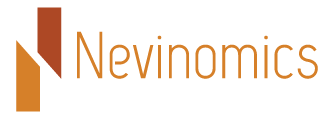
If you think education is expensive, try ignorance.
Derek Bok
There is nothing more important to the long-term success of a society than the quality of its education. No matter how many natural resources or other endowments a nation has, they cannot compensate for a lack of effective human resources. I am confronted with this every day in Nigeria, where I see a country pumping 2 million barrels of oil a day, but struggling woefully because it cannot organize itself to produce the human capital that will improve the economy and Flourishing.
Of course, we all know this, and no one objects to a significant amount of society’s resources going to ensure the next generation is prepared for their responsibilities and their lives.
But where should the resources go? Nevinomics’ 1st Principle is that economics (and therefore policy) is an empirical discipline – we do not know what works ex ante, no matter how elegant our theory. For this reason, Nevinomics sees the What Works Network in the UK as a fantastic initiative.
In a recent study, the What Works Network in the UK investigated carefully what interventions in education make the most difference.1) Evidence for What Works in Education: About the What Works Network Study. Accessed February 8, 2015. As the BBC headline says: Uniform policy – NO.2)Learning the Facts About Learning: BBC News Accessed January 18, 2015. Streaming and streaming – NO. Teaching Assistants – NO. Each of these policies sounds sensible (it does seem common sense that adding a lower cost teaching assistant in the classroom should help), but the benefits are not there.
What does make a difference is investing in metacognition – teaching a learner how he or she learns best (which Nevinomics discussed at length as the need to self-diagnose learning in When Feedback Fails: The Individual and will discuss as the need to self-manage toward personal growth in a future article, Flourishing Through Time). As discussed in When Feedback Fails, this kind of learning is best achieved through a variety of learning activities, some of which must take place outside the traditional classroom.
Let us hope the UK follows its own research and invests in Metacognition.
Turning to a country where there is significant progress in education, it is heartening to see Poland’s reported success in creating an effective education system at a modest cost. Coming out of the Communist Era, Poland’s education system was certainly not fit-for-purpose, as students were assigned to rigid streams, leading to the supposed employment-for-life model.
Today, the system has been doing well, largely because policy makers took on the challenge of creating and implementing intelligent policy. The Pearson Foundation provides an excellent synopsis of what Poland has accomplished.3)Pearson Foundation on Poland’s Education System Accessed January 18, 2015.
One aspect of these reforms that Nevinomics thinks is particularly interesting is that Polish teachers spend less time in the classroom than their counterparts elsewhere – according to the article, teachers spend 513 hours in the classroom versus the OECD average of just above 700. Time does not equal results, and Poland has proved this; Nevinomics holds the view, as expressed in When Feedback Fails: The Individual, that improving access to “real world” skills and travel, but limiting strictly classroom hours, will lead to more resilient learners with better self-assessment, metacognitive, skills.
Well done to Poland.
This is Nevinomics in Action.
Image courtesy of Punaruangjan at FreeDigitalPhotos.net
Footnotes
| 1. | ↑ | Evidence for What Works in Education: About the What Works Network Study. Accessed February 8, 2015. |
| 2. | ↑ | Learning the Facts About Learning: BBC News Accessed January 18, 2015. |
| 3. | ↑ | Pearson Foundation on Poland’s Education System Accessed January 18, 2015. |







